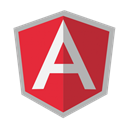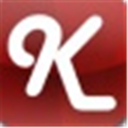Uncovering the Best QCObjects Alternatives for Your JavaScript Projects
QCObjects, a JavaScript framework designed for implementing MVC patterns without transpilers, offers a unique approach to web development. It allows for pure JavaScript component creation and integrates well with CSS3 frameworks like Foundation and Bootstrap, as well as mobile frameworks such as PhoneGap and OnsenUI. However, just like any powerful tool, developers often seek alternatives that might better suit their specific project requirements, offer different community support, or provide a fresh set of features. This article delves into the top QCObjects alternative options available today, helping you find the perfect fit for your next web application.
Top QCObjects Alternatives
When searching for a QCObjects alternative, developers often look for frameworks that offer robust MVC capabilities, strong community backing, and a flexible development environment. Here are some of the leading contenders that provide excellent alternatives to QCObjects.

Vue.js
Vue.js is an intuitive, fast, and composable MVVM framework ideal for building interactive user interfaces. As a free, open-source, and self-hosted platform, Vue.js offers excellent extensibility through plugins and features powerful two-way data-binding, making it a strong QCObjects alternative for projects requiring reactivity and a gentle learning curve.

AngularJS
AngularJS extends HTML to facilitate dynamic views in web applications. It's a free, open-source framework available on Mac, Windows, Linux, and Web platforms. With built-in routing and robust developer tools, AngularJS provides a comprehensive solution for web development, serving as a solid QCObjects alternative for those looking for a more opinionated and structured framework.

React
React, a JavaScript library by Facebook for building user interfaces, emphasizes declarative programming for painlessly creating interactive UIs. It's free and open-source, compatible with Mac, Windows, Linux, and Web. Its features include a virtual DOM, modular system, and excellent developer tools, making React a highly popular and flexible QCObjects alternative for component-based UI development.

Polymer
Polymer is a library that leverages the latest web technologies to allow for the creation of custom HTML elements. Available as a free, open-source solution for Mac, Windows, and Linux, Polymer is excellent for building anything from simple buttons to complete applications as web components. Its focus on web standards makes it an interesting QCObjects alternative for those keen on future-proofing their projects.

Svelte
Svelte is a revolutionary compiler-based component framework that generates highly efficient code for surgically updating the DOM. It's a free, open-source, and self-hosted solution known for its small footprint and excellent developer tools for web development. Svelte offers a compelling QCObjects alternative by shifting the work from the browser to the compile step, resulting in faster applications.

Aurelia
Aurelia is a JavaScript client framework that uses simple conventions to empower developer creativity. It's free and open-source, running on Mac, Windows, Linux, and Web platforms. Aurelia focuses on empowering developers with clean, modular code, making it a robust QCObjects alternative for those who appreciate a framework that prioritizes developer experience and modern web standards.

KnockoutJS
KnockoutJS is a JavaScript library designed to help create rich, responsive display and editor user interfaces with a clean underlying data model. This free, open-source library runs on Mac, Windows, and Linux. Its emphasis on developer tools and data-binding features positions KnockoutJS as a viable QCObjects alternative for projects that benefit from clear separation of concerns and dynamic UI updates.

Backbone.js
Backbone.js provides structure to JavaScript-heavy applications through models with key-value binding and custom events, and collections with a rich API. It's a free, open-source framework available for web development. While minimalistic in features, its emphasis on structuring applications makes Backbone.js a lightweight yet powerful QCObjects alternative for developers who prefer more control and less abstraction.

stenciljs
StencilJS is a toolchain for building reusable, scalable Design Systems that generate small, blazing-fast, and 100% standards-based Web Components. It's free, open-source, and supports Mac, Windows, Linux, Web, and self-hosted environments. Its focus on Web Components makes StencilJS an excellent QCObjects alternative for projects aiming for highly reusable and framework-agnostic UI elements.

Ractive.js
Ractive.js is a template-driven UI library that transforms templates, styles, and logic into blueprints for highly interactive applications. It's free and open-source, available for Mac, Windows, and Linux. With features like developer tools and object-relational mapping, Ractive.js serves as a capable QCObjects alternative for developers prioritizing efficient templating and interactive UI development.
Each of these JavaScript frameworks and libraries offers unique strengths, from reactive data-binding and component-based architectures to minimalist approaches and web component generation. The best QCObjects alternative for you will ultimately depend on your project's specific needs, your team's familiarity with certain paradigms, and your preferred level of abstraction. Explore these options further to find the perfect tool to empower your next JavaScript development endeavor.